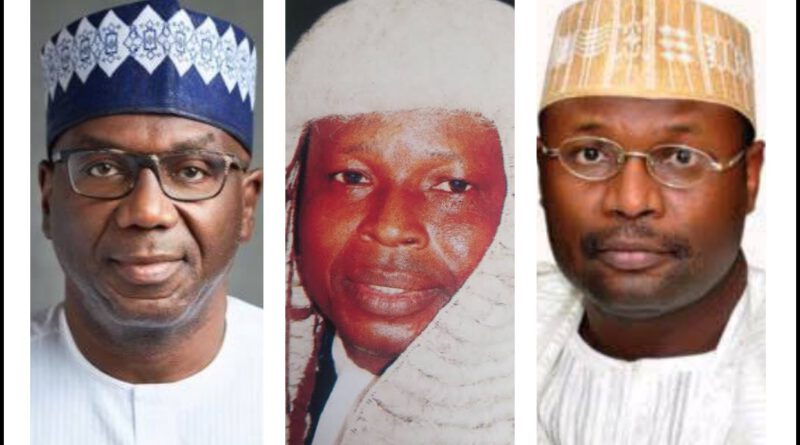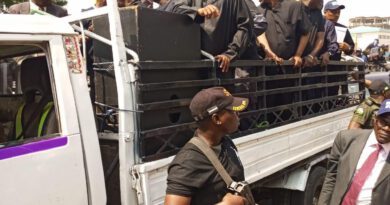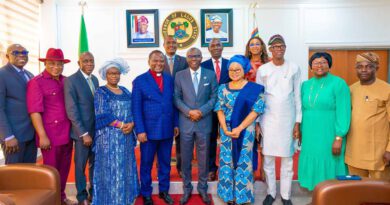Fallout of Supreme Court Ruling on LG Autonomy: Fears Grip States with Caretaker Committees as Some Rush to Conduct Elections
•By Taiwo Olapade
It has been exactly a week since the Supreme Court issued a landmark ruling that paved the way for long-awaited autonomy for local government administration in the country.
Currently, pervasive fears are evident among the 22 states where caretaker committees are at the helm of affairs instead of constitutionally elected council officials.
Thankfully, the Federal Allocation Account Committee (FAAC) has just released the monthly allocation for July. Your guess is as good as mine on the fate of states without elected council officials.
In the wake of the ruling, the Minister of Justice, Mr. Lattef Fagbemi, pointed out that states, including Cross River, Enugu, Kano, Rivers, Jigawa, Anambra, Imo, Kwara, Zamfara, Bauchi, Plateau, Abia, Katsina, Kogi, Sokoto, Yobe, Ondo, Osun, Delta, Akwa Ibom, and Benue, currently with caretaker committees, will not receive allocation until the needful is done.
One wonders how 13 out of these 22 states with caretaker committees suddenly have the courage and funds to set in motion the conduct of council elections. These states are Kaduna, Kogi, Bauchi, Katsina, Osun, Enugu, Benue, Rivers, Jigawa, Imo, Kebbi, Abia, and Anambra.
This development attests to the fact that endemic corruption perpetrated by the governors was largely responsible for their refusal to conduct council polls whenever they were due.
State governors, irrespective of their political party, over the last two decades have been feeding largely on council funds under the guise of the Joint Account Allocation Committee (JAAC), which, surprisingly, was also the creation of Section 162 of the 1999 Constitution.
From the record, 437 Local Government Areas are currently run by Caretaker Committees, while the National Bureau of Statistics revealed that 774 Local Government Areas received ₦2.6 trillion in 2023 alone. They have also received ₦1.42 trillion in the first six months of 2024. The question begging for an answer is whether there are infrastructural developments at the third tier of government to justify these huge resources.
The seven-man panel of the Supreme Court, in a unanimous ruling read by Justice Emmanuel Agim, declared that henceforth the council funds should be paid directly to Local Government Areas.
It equally barred the ’emperor’ Governors from the unilateral dissolution of the councils, adding that the installation of Caretaker Committees has no place in Local Government administration.
However, Nigerians want the Federal Government to take a step further by ensuring that Council Elections are conducted by the Independent National Electoral Commission (INEC) and not SIEC, which is the state version. This is because elections conducted by the State Independent Electoral Commission are clearly predictable, with the party in power recording landslide victories against the will of the people.
The case of the impeached council Chairman of Ijebu East Local Government Area in Ogun State, Mr. Dayo Adedayo, comes to mind. He was forced out of office for challenging Governor Dapo Abiodun over what he described as zero allocation to Local Governments under his watch. Sadly, during that incident, his colleagues, who are now beneficiaries of this famous ruling by the Apex Court, abandoned and distanced themselves from his bold and courageous action.
President Bola Tinubu, who welcomed the judgement of the Apex Court, said that it affirmed the intent and purposes of the constitution on the statutory rights of the Local Governments.
On his part, the former Vice President, Alhaji Atiku Abubakar, applauded the ruling, saying it was in the right direction.
However, Kwara State Governor and Chairman of the Nigerian Governor’s Forum, AbdulRasaq AbdulRahman, said the governors accept the ruling but urged the federal government to do more to enrich true federalism in the country.
The President of the Association of Local Government of Nigeria (ALGON), Maifata Aminu Muazu, commended the courage of the President and described the ruling as popular.
For human rights lawyer and Senior Advocate of Nigeria, Mr. Femi Falana, the judgement will promote accountability at the grassroots level.
In his reaction, lawyer and human rights activist Liborous Oshoma declared that Section 197 of the 1999 Constitution, as amended, requires an amendment for the ruling to take effect, despite the position of the Minister of Justice, Lateef Fagbemi, that the councils will start receiving direct allocation from the end of July.
He believes that the federal government has no reason to handle the sharing of food palliatives in states if we have an efficient and functioning council system.
Barr. Malachy Ugwumadu, the former President of the CDHR, noted that the law established various State Independent Electoral Commissions in Part II of the 3rd Schedule, while their powers are specified under Section 7 of the 4th Schedule of the 1999 Constitution.
He said it is very doubtful whether the respective state Houses of Assembly will outsource their legislative powers on the conduct of the council polls to the National Assembly or make laws binding on the federal government.
Finally, we all have a role to play in closely monitoring activities at various local governments where we reside to ensure the judicious spending of huge resources now allocated to them for the renewal of infrastructure. More than ever before, the Council Chairmen must regularly render accounts of stewardship to the people.




